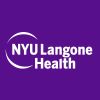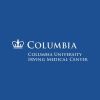Heart Disease Prevention for Those with High Cholesterol: Key Steps for Better Health
- Understanding Heart Disease and High Cholesterol
- Lifestyle Changes for Heart Health
- The Importance of Diet in Preventing Heart Disease
- How Exercise Plays a Crucial Role in Heart Disease Prevention
- Medications for Managing Cholesterol Levels
- The Role of Regular Checkups and Monitoring
Understanding Heart Disease and High Cholesterol
When I first learned about the link between high cholesterol and heart disease, I was shocked by how prevalent this risk factor is. It wasn’t until a routine check-up that my doctor informed me that my cholesterol levels were higher than they should be, putting me at greater risk for heart disease. I was in my 40s, and like many people, I never thought much about heart health, assuming that it was only a concern for older individuals.
However, high cholesterol doesn’t discriminate based on age. It can affect anyone, regardless of lifestyle. Cholesterol is a fatty substance that the body needs to build cells, but when levels get too high, it can lead to the formation of plaque in the arteries. This plaque buildup can narrow the arteries, making it harder for blood to flow to the heart. This is a major risk factor for heart disease, including heart attacks and strokes.
Understanding how high cholesterol can contribute to heart disease is crucial. Once I understood that this condition could silently increase the likelihood of a serious cardiovascular event, I knew I needed to take action. The good news is that by making some lifestyle changes, people with high cholesterol can significantly reduce their risk of heart disease. Let’s look at how you can take control of your heart health.

Lifestyle Changes for Heart Health
One of the most effective ways to prevent heart disease when dealing with high cholesterol is to make certain lifestyle changes. These changes not only help manage cholesterol levels but also improve overall heart health. Here’s what I learned:
- Quit Smoking: Smoking is a major contributor to heart disease and can worsen the effects of high cholesterol. I personally noticed how my cardiovascular health improved after I stopped smoking. Smoking lowers your good cholesterol (HDL) and raises your bad cholesterol (LDL), increasing your risk of a heart attack.
- Limit Alcohol Consumption: Excessive drinking can raise blood pressure and contribute to high cholesterol. Moderation is key, and for me, reducing alcohol intake had an immediate positive impact on my overall health.
- Manage Stress: Chronic stress can lead to unhealthy behaviors like overeating or lack of exercise, which can raise cholesterol levels. I found that adopting stress-relieving activities like meditation, deep breathing, and even yoga helped me maintain a healthier balance.
Making these changes in my daily routine wasn’t easy at first, but the benefits were undeniable. As a result, I saw improvements not only in my cholesterol levels but also in my mood and overall quality of life. Small adjustments over time can lead to significant health benefits.
Capital Health Medical Center – Hopewell
capital health medical center hopewell
1 Capital Way, Pennington, NJ 08534, USA

The Importance of Diet in Preventing Heart Disease
As I began learning about heart disease prevention, one key factor stood out: diet. What you eat plays a significant role in controlling cholesterol levels and reducing the risk of heart disease. I had to become more mindful of the foods I was consuming, and I quickly realized that even small changes could make a big difference.
Here’s how diet directly affects heart health:
- Reduce Saturated and Trans Fats: Foods like red meat, butter, and processed snacks are high in unhealthy fats that raise LDL (bad cholesterol). After changing my diet to include more plant-based foods and healthier fats, such as olive oil and avocado, I noticed an improvement in my cholesterol levels.
- Increase Fiber Intake: Fiber helps to lower LDL cholesterol by binding to it and removing it from the body. I added more whole grains, fruits, vegetables, and legumes to my diet, which not only helped lower my cholesterol but also improved my digestive health.
- Eat More Omega-3 Fatty Acids: Omega-3s, found in foods like fatty fish (salmon, mackerel, and sardines), flaxseeds, and walnuts, are known to reduce cholesterol levels and inflammation. Adding more of these foods to my diet significantly boosted my heart health.
It wasn’t about going on a strict diet but rather making smarter food choices. Through trial and error, I discovered that making small, sustainable changes to my eating habits helped me maintain better cholesterol levels while still enjoying the foods I love.
How Exercise Plays a Crucial Role in Heart Disease Prevention
Exercise is another powerful tool in preventing heart disease, especially for those with high cholesterol. When I first started my fitness journey, I wasn’t expecting it to have such a profound effect on my cholesterol levels, but I quickly realized that regular exercise was one of the best ways to raise good cholesterol (HDL) while lowering bad cholesterol (LDL).
Studies have shown that moderate exercise, such as walking, jogging, cycling, or swimming, can help lower cholesterol and reduce the risk of heart disease. Even something as simple as a 30-minute walk most days of the week can make a big difference in your heart health. Personally, incorporating more physical activity into my routine has not only improved my cholesterol levels but also made me feel more energetic and less stressed.
For those with high cholesterol, exercise should be part of a well-rounded heart disease prevention plan. The key is consistency. Whether you’re just starting out or are already active, finding an exercise routine that works for you will benefit both your heart and overall well-being.
Medications for Managing Cholesterol Levels
In some cases, lifestyle changes alone may not be enough to control high cholesterol, and medications may be necessary. I was initially hesitant about the idea of taking medication, but my doctor explained that for some individuals, statins and other cholesterol-lowering drugs are essential in reducing the risk of heart disease.
Statins are the most commonly prescribed medication for lowering cholesterol. They work by blocking a substance your body needs to produce cholesterol, effectively lowering the levels of bad cholesterol (LDL) and reducing the risk of heart disease. While medications can be highly effective, they should be used in combination with diet and exercise for the best results.
It’s important to have a conversation with your healthcare provider about whether medication is right for you. For me, adding medication to my regimen, combined with my lifestyle changes, gave me a holistic approach to managing my cholesterol and heart health.
The Role of Regular Checkups and Monitoring
One of the most valuable lessons I’ve learned about heart disease prevention is the importance of regular checkups. Having my cholesterol levels monitored regularly allowed me to see firsthand the progress I was making and identify any issues early on. Regular checkups with your healthcare provider are essential, especially if you have high cholesterol or other risk factors for heart disease.
During my checkups, I was able to track my cholesterol levels, blood pressure, and overall heart health. My doctor provided guidance and adjusted my treatment plan when necessary, ensuring that I stayed on track in my heart disease prevention journey. Monitoring also allowed me to make informed decisions about my diet, exercise, and medication use.
Regular heart health screenings are essential for anyone with high cholesterol, as they can help detect potential issues early and prevent major cardiovascular events down the line. It’s better to be proactive than reactive when it comes to heart disease.





















Deborah Heart and Lung Center
deborah heart and lung center
200 Trenton Rd, Browns Mills, NJ 08015, USA